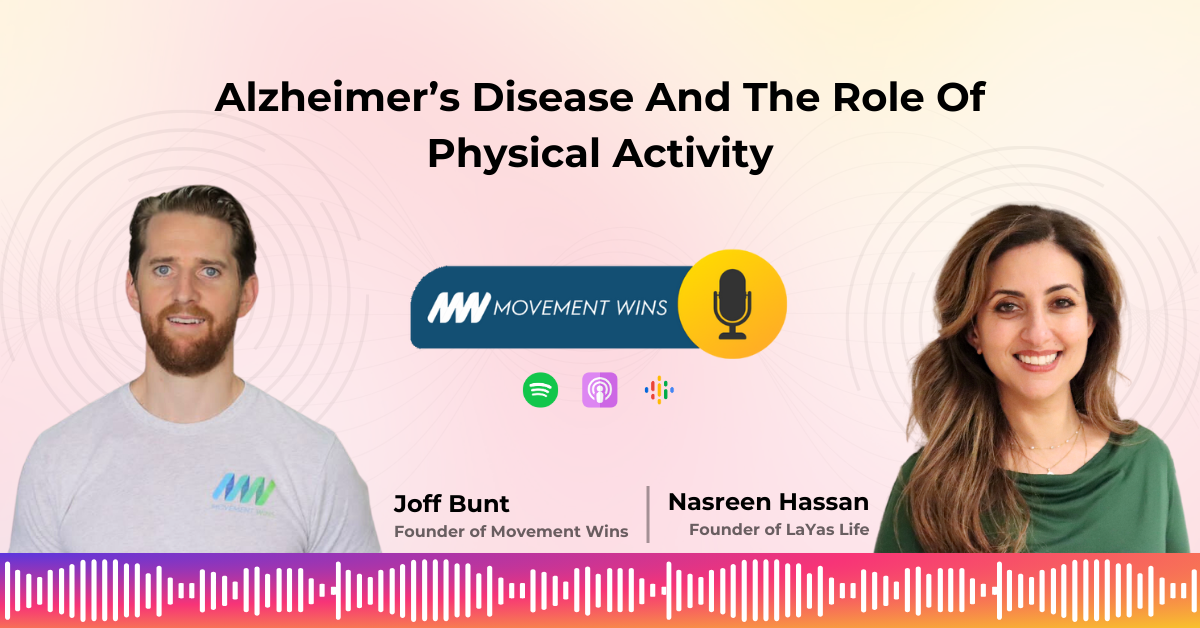Understanding Alzheimer’s Disease: Causes, Symptoms, and Treatment.


Nasreen Hassan
September 21, 2023
Listen to Our Podcast!
Alzheimer’s Disease is a progressive degenerative disease of the brain that affects millions of people worldwide. It is the most common cause of dementia, accounting for approximately 60-80% of all cases. Dementia is not a specific disease; it’s an overall term that describes a group of symptoms that can appear with Alzheimer’s Disease.
Alzheimer’s Disease is a progressive degenerative disease of the brain that affects millions of people worldwide. It primarily targets memory, thinking, and behavior, gradually worsening over time. As the most common cause of dementia, accounting for approximately 60-80% of all cases, Alzheimer’s Disease brings forth a range of symptoms. These symptoms can include memory loss, confusion, difficulty with language, and changes in mood and personality. While dementia itself is not a specific disease, it is an encompassing term that describes a group of symptoms that often manifest in individuals with Alzheimer’s Disease.
The Biology of Alzheimer’s Disease
The biology of Alzheimer’s Disease revolves around two types of abnormalities: plaques and tangles. Plaques are clumps of a protein called Beta-amyloid, which damage and destroy brain cells in several ways, including interfering with cell-to-cell communication. The tangles are twisted fibers of a protein called Tau, which is believed to cause a failure in the transport system of cells, leading to nutrient deprivation and eventually cell death. These plaques and tangles tend to develop in a predictable pattern, starting in areas important for memory and then spreading to other regions. Studying these biological markers forms a significant part of Alzheimer’s research as understanding their formation and impact can lead to potential treatments and preventions.
Causes of Alzheimer’s Disease
The exact cause of Alzheimer’s Disease is still not fully understood. However, research suggests that a combination of genetic, environmental, and lifestyle factors may contribute to its development. While increasing age is the greatest risk factor, dementia is not a normal part of aging.
There are rare cases where specific genes directly cause dementia, accounting for only 1% of cases. These are associated with early onset Alzheimer’s Disease, where symptoms appear before the age of 60. Additionally, certain variations in the APOE gene have been linked to Alzheimer’s Disease, although they are not deterministic.
Being a woman is another risk factor, as two out of every three cases of Alzheimer’s disease occur in women. The reasons for this are still unclear.
While we cannot change our genes or halt the aging process, there are modifiable lifestyle factors that can potentially prevent, delay the onset, or slow down the progression of the disease. These factors include engaging in physical activity, getting quality sleep, maintaining a nutritious diet, not smoking, and avoiding excessive alcohol consumption
Symptoms of Alzheimer’s Disease
Alzheimer’s Disease, a neurodegenerative disorder, typically progresses slowly over time, impacting various aspects of cognitive function, including memory, thinking, and behavior. While the symptoms can manifest differently in each individual, there are some common signs to look out for:
- Memory loss: This can involve forgetting recently learned information or important events, as well as struggling to retain new memories.
- Difficulty with problem-solving and planning: Individuals may find it challenging to complete familiar tasks or follow instructions, experiencing difficulties in organizing their thoughts or making decisions.
- Confusion and disorientation: Getting lost in familiar places or losing track of time can be common, as individuals may struggle with spatial awareness and temporal orientation.
- Language problems: Trouble finding the right words or following conversations can occur, as individuals may experience difficulties with verbal communication and comprehension.
- Changes in mood and behavior: Becoming easily agitated, irritable, or withdrawn can be observed, as the disease can affect emotional regulation and social interactions.
- Loss of initiative: Individuals may lose interest in activities they previously enjoyed, demonstrating apathy and a lack of motivation.
As Alzheimer’s Disease progresses, individuals may require increasing assistance with daily activities and experience more pronounced cognitive and physical impairments, necessitating specialized care and support.
Current Treatments for Alzheimer’s Disease
Currently, there is no cure for Alzheimer’s Disease, but certain treatments can help manage the symptoms and improve the quality of life for those affected. Medications such as cholinesterase inhibitors and memantine are often prescribed to mitigate cognitive symptoms like memory loss and confusion. These drugs work by regulating neurotransmitters, the brain’s communication carriers. Non-drug approaches are also vital and can include interventions like cognitive stimulation therapy, which involves structured activities to enhance memory and cognition. Regular physical activity, a balanced diet, and good sleep hygiene can also contribute to overall well-being. Additionally, support from healthcare professionals, community resources, and family is crucial in managing the disease.
Leqembi is a relatively new, innovative medication that has been gaining attention in the field of Alzheimer’s Disease treatment. This drug, which targets the Tau protein, aims to halt the progression of the disease by preventing the formation of tangles in the brain. Early trials have shown promising results, with patients reporting slowed cognitive decline and improved daily functioning. However, more extensive research is needed to fully understand the long-term effectiveness and potential side effects of Leqembi. By focusing on the underlying biology of Alzheimer’s, such potential treatments like Leqembi represent a hopeful direction in the ongoing fight against this debilitating disease.
The Importance of Early Detection and Awareness
While there is currently no cure for Alzheimer’s Disease, early detection is crucial for several reasons. It allows individuals and their families to plan for the future, access available treatments, and participate in clinical trials. Moreover, early diagnosis provides an opportunity for lifestyle modifications that may help reduce the risk of developing Alzheimer’s or slow its progression.
Raising awareness about Alzheimer’s Disease is essential in combating the stigma associated with dementia and increasing support for affected individuals and their caregivers. Through education and understanding, we can reduce fear and promote empathy towards those living with Alzheimer’s. This includes creating dementia-friendly communities that prioritize inclusion and support for individuals with cognitive impairments and their caregivers.
Alzheimer’s Disease is a complex condition that affects millions of people worldwide. While much research is still needed, advances in our understanding of the causes, symptoms, and treatment options offer hope for individuals and families affected by Alzheimer’s. Researchers are exploring innovative approaches, including genetic studies, biomarker research, and clinical trials, to unlock the mysteries of this disease.
By promoting awareness, supporting research, and fostering compassionate care, we can work towards a future where effective treatments and a cure for Alzheimer’s Disease are within reach. This includes advocating for increased funding for Alzheimer’s research and supporting organizations that provide resources and services to individuals and families affected by the disease. Together, we can make a difference in the lives of those impacted by Alzheimer’s Disease and strive for a world without this devastating condition.

